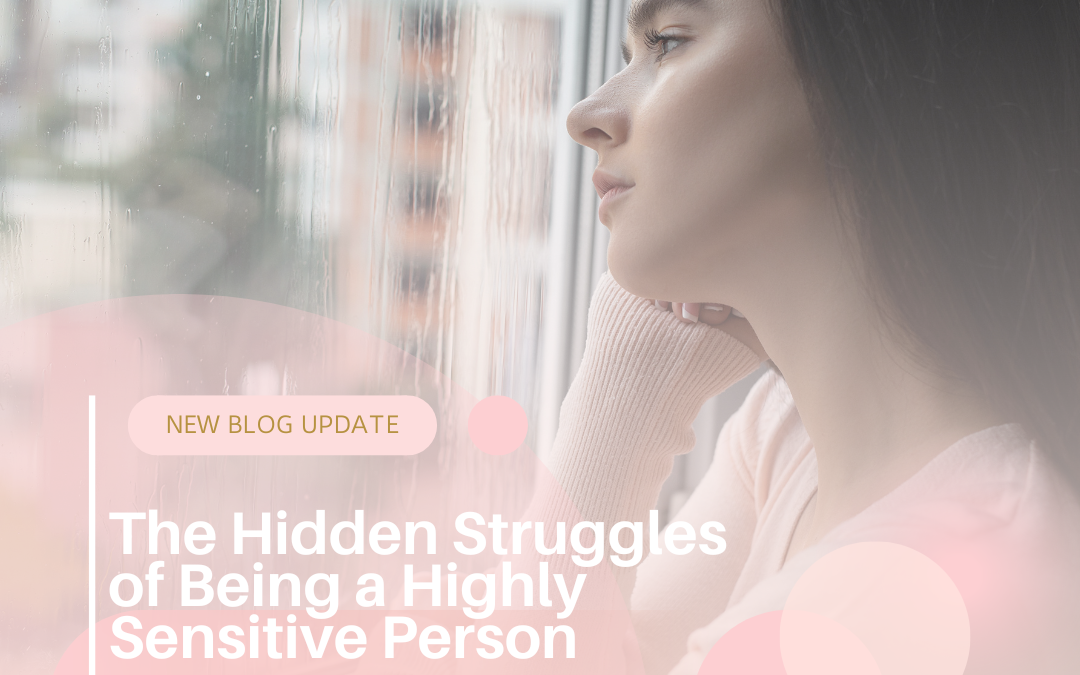Have you ever been told you’re “too sensitive,” “overthinking,” or “taking things too personally”? If so, you might be a Highly Sensitive Person (HSP)—a temperament trait rooted in biology, not weakness.
Roughly 15–20% of the population are thought to be highly sensitive. This trait, first defined by psychologist Dr. Elaine Aron, is characterized by a heightened nervous system that processes sensory and emotional information more deeply than others.
While high sensitivity brings strengths—such as empathy, intuition, and creativity—it also makes one more susceptible to anxiety, sensory overwhelm, and emotional exhaustion. Let’s unpack what it really means to be an HSP in today’s world and how it relates to mental health challenges.
What Is a Highly Sensitive Person (HSP)?
Being an HSP doesn’t mean you’re fragile or dramatic. It means your brain processes subtleties more deeply, and you react more intensely to both positive and negative stimuli.
Common traits of HSPs include:
-
A strong emotional response to beauty, art, or music
-
Deep empathy and emotional attunement to others
-
A rich inner life and vivid imagination
-
Discomfort with loud noises, strong smells, or bright lights
-
Needing downtime after socializing or stimulation
-
Feeling easily overwhelmed by busy environments or multitasking
This depth of processing can be a gift—but it comes with emotional costs, especially in a culture that rewards hustle over stillness and stoicism over sensitivity.
The Link Between HSPs and Anxiety
Because HSPs are more sensitive to internal and external stimuli, their nervous systems are more easily activated. This can create a fertile ground for generalized anxiety, especially in overstimulating or unpredictable environments.
Here’s how it plays out:
-
HSPs often notice subtle cues (tone, facial expressions, body language) and may ruminate on them.
-
They tend to over-prepare and worry in anticipation of potential stressors.
-
Their heightened sense of responsibility or perfectionism can lead to chronic tension and fear of failure.
While not all HSPs have anxiety disorders, they are at higher risk—especially if raised in invalidating or high-pressure environments.
Overstimulation: The Silent Drain
Overstimulation is a core struggle for HSPs. In a single day, an HSP may be bombarded by:
-
Noisy offices or crowded commutes
-
Rapid-fire texts, emails, or deadlines
-
Strong social energy from group interactions
-
Emotional weight from helping others in distress
Because HSPs process more and feel more deeply, their bandwidth fills up faster. This can lead to emotional flooding, irritability, shutdown, or fatigue.
Where others might unwind with a party or screen time, HSPs often need quiet solitude, nature, or creative expression to restore balance.
HSPs and Burnout: Why It Happens Faster
In work and relationships, HSPs often give deeply—emotionally, mentally, energetically. Many are caretakers, therapists, teachers, or creatives. While these roles are meaningful, they’re also emotionally taxing.
Signs of HSP burnout may include:
-
Emotional numbness or apathy
-
Loss of joy in previously loved activities
-
Sleep issues, fatigue, or chronic pain
-
Withdrawal or dread toward social interactions
-
Feeling disconnected or like you’re “on autopilot”
Unlike traditional burnout caused by external stress, HSP burnout often stems from internal overload and unrelenting self-expectations.
Thriving as a Highly Sensitive Person
High sensitivity isn’t something to fix—it’s something to understand and honor. Here’s how HSPs can thrive:
1. Schedule quiet time like it’s a priority.
Treat rest, solitude, and reflection as essential, not optional.
2. Practice radical boundaries.
Protect your time, energy, and peace—even if it means saying no to others’ expectations.
3. Honor your body’s signals.
Your early signs of stress (clenched jaw, irritability, zoning out) are whispers to slow down.
4. Seek sensory-friendly spaces.
Create calm environments at home or work that support your regulation.
5. Find your people.
Connect with others who understand sensitivity as a strength—not a flaw.
Final Thoughts
Being a Highly Sensitive Person is a powerful way of moving through the world—it allows for depth, connection, and compassion. But without awareness and care, it can also lead to chronic anxiety, overwhelm, and burnout.
If you’re an HSP, your sensitivity is not a burden. It’s your superpower. Learn to work with it, not against it—and you’ll uncover a more authentic and aligned way of living.


Recent Comments